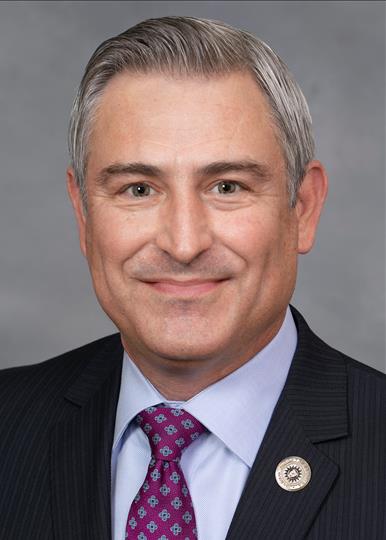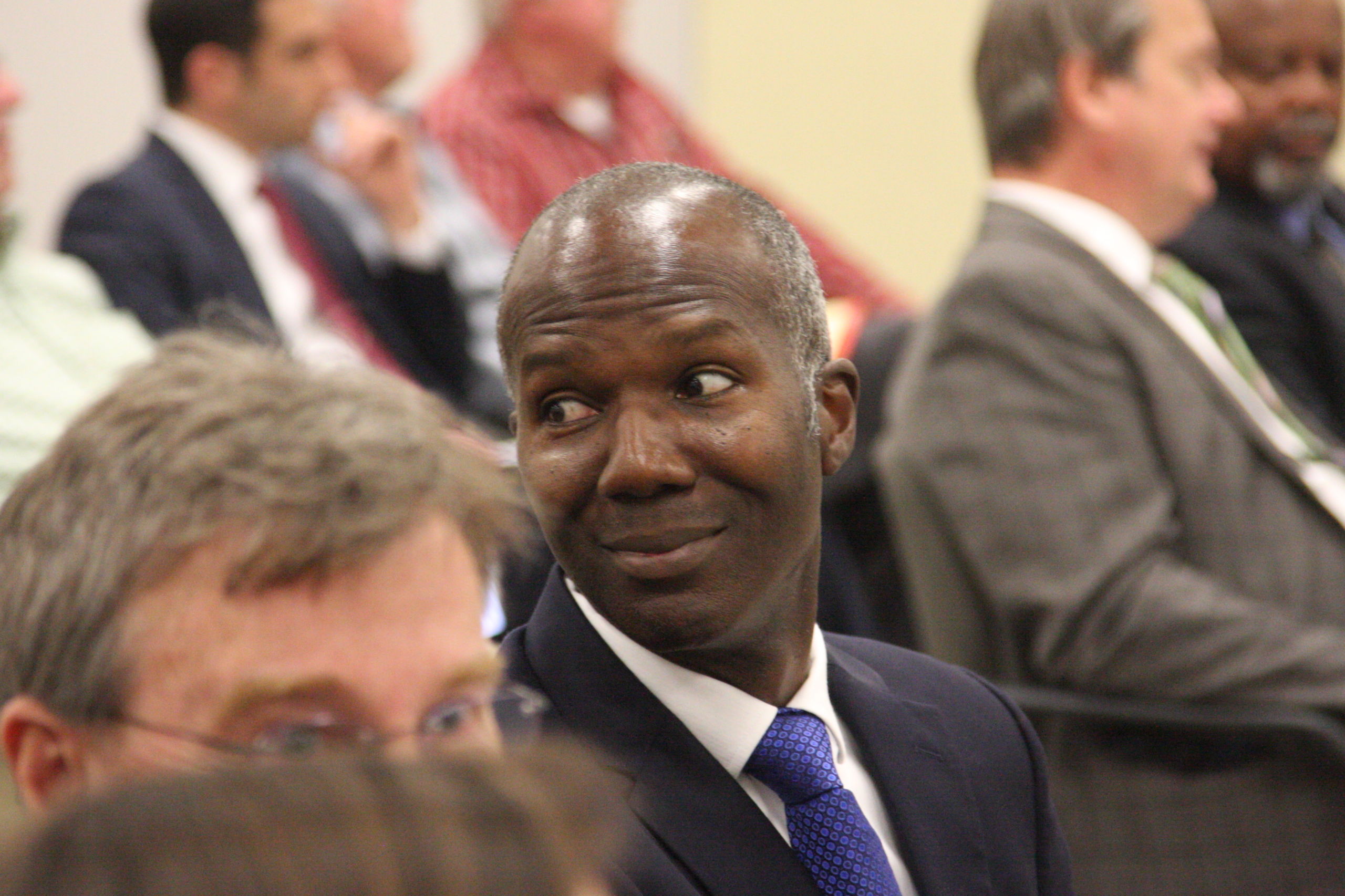Neither state Senate Democrat who initially voted for the Free the Smiles legislation last month was willing to stick with that “yes” vote this week. Both of their “yes” votes turned into “no” when they had a chance to help override Gov. Roy Cooper’s veto of the school masking measure.
The flip from “yes” to “no” fits a common pattern for legislative Democrats’ veto override votes during Cooper’s administration. The pattern has become especially pronounced since 2019.
 Democrats have cast 70 “yes” votes to override Cooper vetoes since he took office in 2017. Fifty-five of those “yes” votes came during the governor’s first two years in the Executive Mansion. That was a time when Republicans held veto-proof supermajorities in both chambers of the General Assembly.
Democrats have cast 70 “yes” votes to override Cooper vetoes since he took office in 2017. Fifty-five of those “yes” votes came during the governor’s first two years in the Executive Mansion. That was a time when Republicans held veto-proof supermajorities in both chambers of the General Assembly.
If GOP lawmakers voted together in 2017 and 2018, they needed no Democratic support to overcome Cooper’s objections. In those circumstances, Democrats’ “yes” votes made little to no difference in determining whether a bill ultimately survived or failed.
Ten of those initial “yes” votes in 2017 came from Rep. William Brisson of Bladen County. First elected to the N.C. House as a Democrat, Brisson switched party affiliation from Democrat to Republican in October 2017. Nonetheless, he had 10 opportunities to vote against Cooper in 2017 while still serving as a Democrat.
Another eight Cooper-era Democratic “yes” votes came from Sen. Joel Ford of Mecklenburg County. By the time Ford voted against Cooper in 2018, he had fallen out of favor with Democratic Party leadership. The same could be said for Rep. Duane Hall, D-Wake, who voted “yes” on five veto overrides in 2018.
Subtract those special cases from the list, and the General Assembly still featured a handful of other Democrats who were willing to cast “yes” votes after a gubernatorial veto in 2017 and 2018.
Rep. Larry Bell of Sampson County cast one “yes” vote, though he flipped from “yes” to “no” on three other veto override votes. In other words, he compiled a 1-3 record in sticking to his initial “yes” vote. Others who cast “yes” votes during that period: Rep. Carla Cunningham (1-2), Sen. Don Davis (3-7), Rep. Beverly Earle (1-1), Rep. Elmer Floyd (2-2), Rep. Ken Goodman (6-5), Rep. Charles Graham (1-1), Rep. George Graham (1-2), Rep. Ed Hanes (2-1), Rep. Yvonne Holley (1-1), Rep. Howard Hunter (2-1), Sen. Paul Lowe (2-3), Sen. Floyd McKissick (1-2), Rep. Rodney Moore (1-3), Rep. Billy Richardson (1-2), Sen. Erica Smith (2-4), Sen. Mike Woodard (2-1), and Rep. Michael Wray (2-3).
Cooper vetoed 28 bills during his first two years as governor. The General Assembly voted successfully to override those vetoes 23 times.

The political calculus changed in 2019. Republicans had lost veto-proof supermajorities in the 2018 elections. Legislative leaders would need at least some help from Democrats to override a Cooper veto moving forward.
Democrats cast just three “yes” votes on veto overrides in 2019. Davis, Charles Graham, and Rep. Garland Pierce of Scotland County all stuck by their initial “yes” votes on Senate Bill 359, the Born-Alive Abortion Survivors Act. Davis’ vote gave the Senate the decisive 30th vote needed to move that bill out of the chamber. In the House, “yes” votes from Graham and Pierce were not enough to salvage the measure. A 67-53 veto override vote fell five votes short of the three-fifths majority needed to override Cooper.
No Democratic senator cast a single “yes” vote on a veto override in 2020. But “yes” votes were a bit more plentiful among House Democrats. Six (Reps. Scott Brewer, Floyd, Charles Graham, Joe Sam Queen, Ray Russell, and Wray) voted to override Cooper’s veto of House Bill 652, the Second Amendment Protection Act. With five Republicans absent from the override vote, the 66-48 margin fell short of the three-fifths margin needed to send the bill to the Senate.
Brewer, Ray, and Rep. James Gailliard all voted “yes” on House Bill 806, a measure to open exercise and fitness facilities during the COVID-19 pandemic. Wray also voted “yes” on House Bill 594, which would have addressed a similar COVID reopening plan. Rep. Jean Farmer-Butterfield voted “yes” on House Bill 686, which would have permitted open celebrations of the July 4 holiday. All three of those bills fell short of the three-fifths threshold.
The House took no votes on veto overrides in 2021. The Senate took just one. The only Democrat to cast a “yes” vote for a veto override last year was Sen. Kirk deViere, D-Cumberland. He stuck with his initial “yes” vote on Senate Bill 37, a measure designed to guarantee in-person instruction for public school students. With Lowe flipping his initial “yes” vote to “no” and Hoke County Sen. Ben Clark not showing up for the vote, the measure fell one vote short of advancing to the House.
The S.B. 37 veto override vote took place on March 1, 2021. Neither chamber considered another veto for more than a year. That streak continued until Wednesday’s vote on Senate Bill 173, the Free the Smiles Act.
Once again, Clark and deViere had cast initial “yes” votes for the legislation. Both flipped to “no” for the veto override, and the measure fell short.

For Clark, it was the 11th time during Cooper’s tenure in office that he faced an opportunity to stand by his initial “yes” vote or defer to the governor. On every occasion, Clark has refused to cross Cooper.
Clark has had more opportunities than most of his colleagues to affirm or reject an initial “yes” vote on a bill after a Cooper objection. But he is far from alone in refusing to cast a vote against the governor.
Here is a list of current Democratic lawmakers who have flipped their initial “yes” votes every time when facing a veto override in the Cooper era:
- Rep. Gale Adcock, 0-4
- Rep. John Ager, 0-2
- Rep. Kelly Alexander, 0-2
- Rep. John Autry, 0-1
- Rep. Cynthia Ball, 0-3
- Rep. Mary Belk, 0-1
- Sen. Dan Blue, 0-2
- Rep. Cecil Brockman, 0-2
- Rep. Deb Butler, 0-2
- Rep. Becky Carney, 0-1
- Sen. Jay Chaudhuri, 0-3
- Clark, 0-11
- Rep. Ashton Clemmons, 0-1
- Rep. Allison Dahle, 0-1
- Sen. Toby Fitch, 0-1
- Sen. Valerie Foushee, 0-3
- Rep. Terry Garrison, 0-3
- Rep. Rosa Gill, 0-3
- Rep. Wesley Harris, 0-1
- Rep. Pricey Harrison, 0-1
- Rep. Zack Hawkins, 0-1
- Sen. Jeff Jackson, 0-2
- Rep. Joe John, 0-5
- Rep. Marvin Lucas, 0-6
- Rep. Grier Martin, 0-1
- Rep. Graig Meyer, 0-1
- Rep. Marcia Morey, 0-1
- Rep. Amos Quick, 0-1
- Rep. Robert Reives, 0-3
- Sen. Gladys Robinson, 0-2
- Rep. Kandie Smith, 0-1
- Rep. Raymond Smith, 0-1
- Rep. Evelyn Terry, 0-2
- Rep. Brian Turner, 0-6
- Sen. Joyce Waddell, 0-3
- Rep. Shelly Willingham, 0-4
Absent Republican supermajorities, the end result is that every Cooper veto since 2019 has been sustained. His current streak stands at 43 successful vetoes in a row.